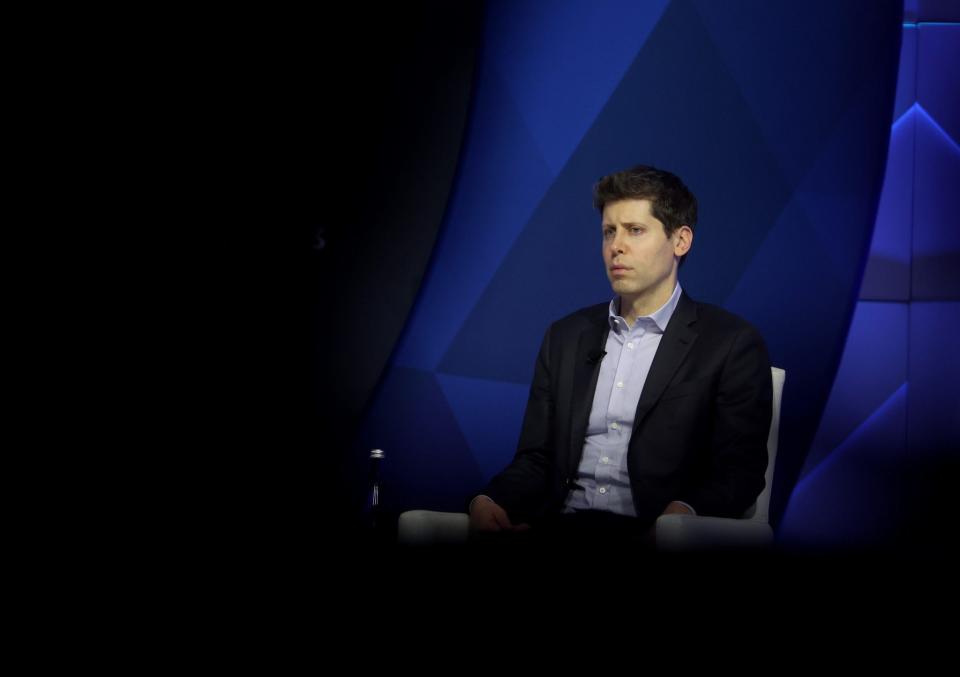OpenAI’s crackup is another black eye for effective altruism

Last November, a red-hot startup founded by a guy named Sam imploded in a massive scandal. Fast forward to this November, and the very same thing happened—though this time, the Sam at the center of it is named Altman, not Bankman-Fried.
The parallel is just a funny coincidence (though not so funny for investors in Altman's OpenAI, who stand to lose billions after its founder was deposed in a shocking coup on Friday afternoon). And, of course, Altman still holds a godlike status in the tech world while Bankman-Fried awaits a decades-long prison sentence for defrauding clients of his FTX crypto exchange.
Even though the two Sams are wildly different, there's a notable overlap between the companies they founded: a link to effective altruism, the controversial philanthropic movement that espouses saving humanity through a radical form of utilitarianism. In the case of FTX, Bankman-Fried and his cronies professed devotion to "EA," but all their high-minded words turned out to be flimflam to justify robbing people. In the case of OpenAI, the situation is more complicated.
For better or worse, the EA crowd has been one of the loudest advocates for putting guardrails on artificial intelligence. Their influence extends to OpenAI, where "at least two of the board members, Tasha McCauley and Helen Toner, have ties" to the movement. Meanwhile, it's not clear if OpenAI cofounder Ilya Sutskever (who reportedly led the coup to depose Altman) is officially in the effective altruism camp—though he certainly seems to have a penchant for cult-like behavior.
"Anticipating the arrival of this all-powerful technology, Sutskever began to behave like a spiritual leader," reports The Atlantic. "His constant, enthusiastic refrain was 'feel the AGI,' a reference to the idea that the company was on the cusp of its ultimate goal. At OpenAI’s 2022 holiday party, held at the California Academy of Sciences, Sutskever led employees in a chant: 'Feel the AGI! Feel the AGI!'”
The publication adds that Sutskever "commissioned a wooden effigy from a local artist that was intended to represent an 'unaligned' AI—that is, one that does not meet a human’s objectives. He set it on fire to symbolize OpenAI’s commitment to its founding principles." Let's just note, for comparison, that in all my time at Fortune I've never seen our CEO, Alan Murray, lead a chant or set an effigy on fire.
It's hard to know for sure how much effective altruism did or did not contribute to OpenAI's meltdown, but some are already pointing fingers. This includes tech writer James Ball whose critique of the company's unworkable management structure begins with a heading "It all starts with effective altruism," as well as Coinbase CEO Brian Armstrong who railed, "If this is really some EA, decel, AI safety coup at OpenAI, the board just torched $80B of value, destroyed a shining star of American capitalism, and will be sued to high heaven by investors."
The full story of what went down at OpenAi is complicated, and new developments are unfolding by the hour as the company appoints a new CEO and Microsoft maneuvers behind the scenes, but it seems a safe bet this latest debacle will make effective altruism even less popular than it is already.
Jeff John Roberts
jeff.roberts@fortune.com
@jeffjohnroberts
This story was originally featured on Fortune.com

 Yahoo Finance
Yahoo Finance 